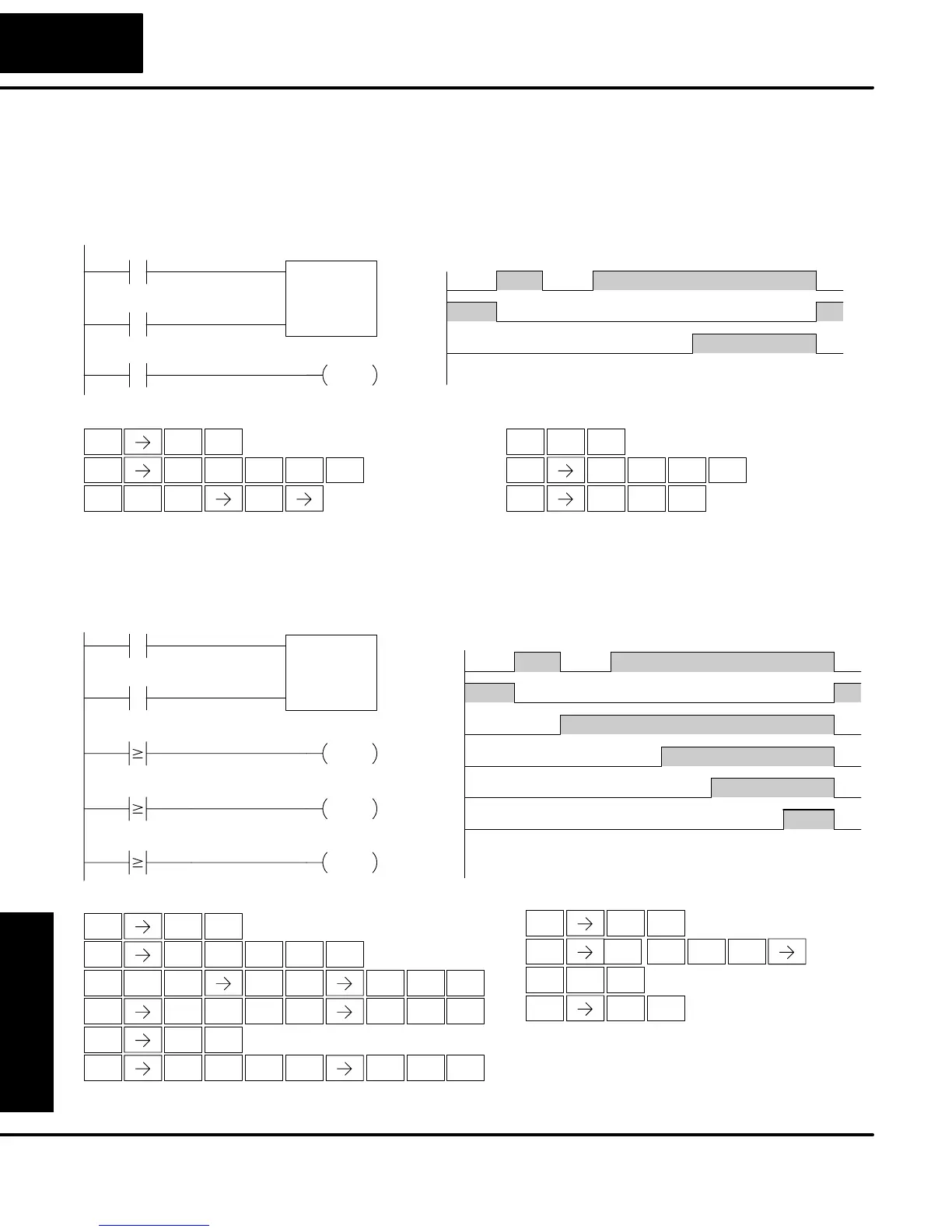Standard
RLL Instructions
5–34
Standard RLL Instructions
Timer, Counter, and Shift Register Instructions
In the following example, a two input timer (accumulating timer) is used with a preset
of 3 seconds. The timer discrete status bit (T6) will turn on when the timer has timed
for 3 seconds. Notice in this example that the timer times for 1 second , stops for one
second, then resumes timing. The timer will reset when C10 turns on, turning the
discrete status bit off and resetting the timer current value to 0.
andheld Programmer Keystrokes
X1
T6
TMRA T6
K30
C10
Y7
OUT
X1
C10
123456780
01010203040 500
Current
Value
T6
1/10 Seconds
Seconds
Handheld Programmer Keystrokes (cont)
STR
$
STR
$
SHFT ENT
2
C
1
B
0
A
TMR
N
SHFT
0
A
3
D
0
A
ENT
STR
$
SHFT
MLR
T
ENT
OUT
GX
ENT
0
A
6
G
1
B
1
B
ENT
6
G
In the following example, a single input timer is used with a preset of 4.5 seconds.
Comparative contacts are used to energized Y3, Y4, and Y5 at one second intervals
respectively. The comparative contacts will turn off when the timer is reset.
Handheld Programmer Keystrokes
TA20 K10
TA20 K20
TA20 K30
Y4
OUT
Y3
OUT
Y5
OUT
X1
TMRA T20
K45
C10
X1
C10
123456 780
01010203040 500
Current
Value
Timing Diagram
Y3
Y4
Y5
T20
DirectSOFT
Handheld Programmer Keystrokes (cont)
1/10 Seconds
Seconds
STR
$
SHFT
MLR
T
2
C
0
A
ENT
OUT
GX
ENT
2
C
4
E
STR
$
SHFT
MLR
T
2
C
0
A
ENT
OUT
GX
ENT
3
D
5
F
STR
$
1
B
ENT
ENT
4
E
5
F
STR
$
SHFT
MLR
T
2
C
0
A
1
B
ENT
OUT
GX
ENT
3
D
STR
$
SHFT ENT
2
C
1
B
0
A
2
C
0
A
TMR
N
SHFT
0
A
0
A
0
A
0
A
Accumulating
Timer Example
using Discrete
Status Bits
Accumulator Timer
Example Using
Comparative
Contacts

